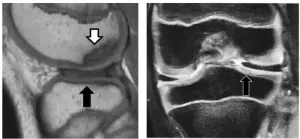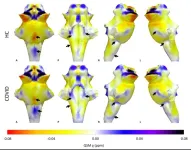(Press-News.org) A cognitive behavioural therapy (CBT) app has been found to significantly prevent increases in depression in young people who are at high risk - and could be implemented as a cost effective public mental health measure.
Globally, concern is growing about the high and steadily increasing rates of anxiety and depression in young people. Effective and scalable ways of preventing poor mental health in this group are needed, and digital tools such as mobile apps have been proposed as part of the solution.
Whilst there is emerging evidence for mental health apps being effective in treating anxiety and depression, this project led by the University of Exeter is the first to rigorously test a mental health app on such a large scale across four countries. Two linked papers published in Lancet Digital Health report the results of the ECoWeB-PREVENT and ECoWeB-PROMOTE trials, which ran concurrently in the four-year study funded by Horizon 2020. Critically, these studies found that a CBT self-help app can protect vulnerable young people against depression.
Professor Ed Watkins from the University of Exeter led the project and said: “For young people with elevated risk, our findings suggest the CBT app does have a preventative effect on depression and could have a public health benefit. Participants’ quality-of-life measures were better, and their reported work and social functioning was better.
“However, we also found that it’s hard to make improvements in young people who are basically doing okay. Our findings add to the evidence that prevention for depression works best when we identify and select individuals who are more at risk, rather than take a more universal approach. This identification could be done by an online self-screening process or through professional referral.”
The aim of the £3.3-million project was to test the effects of mobile apps in preventing depression and promoting mental well-being for young people aged 16 to 22. In one of the largest studies of its kind, 3,700 young people took part across the UK, Germany, Belgium, and Spain and were allocated into two trials based on their emotional competence abilities at the start of the study. That resulted in 1,200 young people with reduced emotional competency scores that confer increased risk for depression such as increased worry and overthinking going into one trial focused on prevention, whilst 2,500 without such risk went into the other trial focused on wellbeing promotion.
Those two groups were then randomised in equal numbers to three different apps developed by the study. There was a self-monitoring app where people can report their emotions every day, a self-help app that provided personalised training in emotional competence skills, and a self-help app based on CBT principles. Participants were then followed up at three months and 12 months to see how their wellbeing and depression symptoms changed.
The trials found the CBT app prevented an increase in depression, relative to self-monitoring in the higher risk sample, but that there was no difference between any of the interventions in their effects for the lower risk sample.
Professor Ed Watkins said: “Our results suggest that even when young people used the self-help app just a few times, there was a small but meaningful benefit. Because the app is scalable to large numbers of people in a cost-effective way, these effects have potential value as a public health intervention, within a broader portfolio of digital and in-person services and interventions. Next steps are to identify the active ingredients of the app that were beneficial and to improve engagement and ongoing use of these elements.”
The project involved 13 different partners, including two commercial companies - German voice analysis company audEERING and Danish app creator Monsenso. The University of Exeter (UK), LMU Munich (Germany), Ghent University (Belgium), and Universitat Jaume I (Spain), were the main treatment development and trial sites. Meanwhile, the University of Oxford led on the qualitative analysis.
The studies are titled ‘Emotional competence self-help app versus cognitive-behavioural self-help app versus self-monitoring app to prevent depression in young adults with elevated risk (ECoWeB PREVENT): an international, multicentre, parallel, open-label, randomised controlled trial’ and ‘Emotional competence self-help mobile phone app versus cognitive behavioural self-help app versus self-monitoring app to promote mental wellbeing in healthy young adults (ECoWeB PROMOTE): an international, multicentre, parallel, open-label, randomised controlled trial’, and both are published in Lancet Digital Health.
ENDS
END
Mental health app could help prevent depression in young people at high risk
2024-10-08
ELSE PRESS RELEASES FROM THIS DATE:
Dogs contaminate London ponds with parasite medications
2024-10-08
Most dog owners didn’t know that flea and tick treatments are dangerous to aquatic life, suggesting more awareness could ease the problem.
A study on Hampstead Heath shows that ponds where dogs are allowed to swim contain levels of two pesticides harmful to invertebrate life.
These pesticides, imidacloprid and fipronil, are used as parasite treatments for flea and tick infestations in cats and dogs, using ‘spot-on’ formulas and flea collars. This is despite these chemicals being banned for agricultural use in 2018 due to their toxicity to bees and other ...
Oh my meniscus: age poses risk of further knee injury in children
2024-10-08
Growing pains are common in maturing children, but sometimes this growth can be irregular and cause injury. Discoid lateral meniscus (DLM), a misshapen knee cartilage, is one such occurrence that can degenerate into osteochondritis dissecans, a joint disorder where the bone and joint begin to separate from the rest of the bones. It has been reported that osteochondritis dissecans of the femoral condyle occurs in approximately 14.5% of cases of DLM, but there has been little analysis of its treatment to date.
Dr. Ken Iida and Specially ...
Increase access to nature in all daily environments and in education
2024-10-08
Although access to nature is a basic human right, people’s actual use of green spaces is subject to inequalities. A Kobe University-led research team analyzed what conditions make it more likely that people are exposed to nature across generations: the availability of green spaces around where they live, work and shop, as well as nature relatedness and past natural experiences. Their findings may inform policies for urban planning and education for the improvement of human health.
Visiting green spaces is good for people’s health, both psychologically and physiologically. ...
AI speeds up the discovery of energy and quantum materials.
2024-10-08
Researchers from Tohoku University and the Massachusetts Institute of Technology (MIT) have unveiled a new AI tool for high-quality optical spectra with the same accuracy as quantum simulations, but working a million times faster, potentially accelerating the development of photovoltaic and quantum materials.
Understanding the optical properties of materials is essential for developing optoelectronic devices, such as LEDs, solar cells, photodetectors, and photonic integrated circuits. These devices are pivotal in the semiconductor industry's current resurgence.
Traditional means of calculation using the basic laws of physics involve complex ...
An efficient way to hydrogenate nitrogen-containing aromatic compounds has been developed
2024-10-08
Successful reduction of the chemical manufacturing industry’s environmental impact relies on finding a greener way to make the chemical building blocks for common and massively consumed compounds.
It’s no secret manufacturing processes have some of the most impactful and intense effects on the environment, with the chemical manufacturing industry topping the charts for both energy consumption and emissions output. While this makes sense thanks to the grand scale in which manufactured chemicals are involved in daily life, it still leaves a lot to be desired for sustainability’s sake. By focusing on renewable energy sources and alternative methods for creating the ...
Study finds common breast cancer treatments may speed aging process
2024-10-08
A new study led by investigators at the UCLA Health Jonsson Comprehensive Cancer Center has revealed that common breast cancer treatments, including chemotherapy, radiation, and surgery, may accelerate the biological aging process in breast cancer survivors.
The findings, published in the Journal of the National Cancer Institute, show that markers of cellular aging—such as DNA damage response, cellular senescence, and inflammatory pathways—significantly increased in all breast cancer survivors, regardless of the type of treatment received. This suggests that the impact of breast cancer treatments ...
Ultra-powered MRI scans show damage to brain’s ‘control center’ is behind long-lasting Covid-19 symptoms
2024-10-07
Damage to the brainstem – the brain’s ‘control centre’ – is behind long-lasting physical and psychiatric effects of severe Covid-19 infection, a study suggests.
Using ultra-high-resolution scanners that can see the living brain in fine detail, researchers from the Universities of Cambridge and Oxford were able to observe the damaging effects Covid-19 can have on the brain.
The study team scanned the brains of 30 people who had been admitted to hospital with severe Covid-19 early in the pandemic, ...
Despite progress, China remains tethered to coal as climate change pressures mount
2024-10-07
A new paper from the University of California San Diego details how China faces numerous political, economic and technological obstacles as it tries to transition away from coal—the country’s primary energy source—while balancing the need to combat climate change with the need for energy security.
Despite its commitment to "phase down" coal, China recently has been permitting and constructing coal plants at rates not seen in a decade.
“There is an increased focus on energy security in China—in 2021, the country experienced its worst power outages in decades, affecting ...
Open Call: Journalists in Residence Program at Institute of Science and Technology Austria (ISTA)
2024-10-07
The Institute of Science and Technology Austria (ISTA) is a PhD-granting research institute near Vienna. It was founded in 2009, with the bold ambition of providing the best possible environment to conduct innovative frontier research. It is dedicated to transcending traditional boundaries of disciplines, cutting-edge infrastructure, training the next generation of scientific leaders, and increasing the impact of science through science engagement as well as technology transfer. It is home to 82 research groups across all fields, ...
Small creatures, big impact
2024-10-07
Could the butterfly effect - in which a small change in one state of a system can result in large differences in a later state - also apply to the earth’s oceans, as well as its skies?
Some species of zooplankton are on the order of one millimeter, but don’t let their size fool you. It’s possible these small creatures can create quite a wave.
While it’s long been understood that large marine animals, like fish or whales, can stir up the ocean’s water columns, the impact ...






